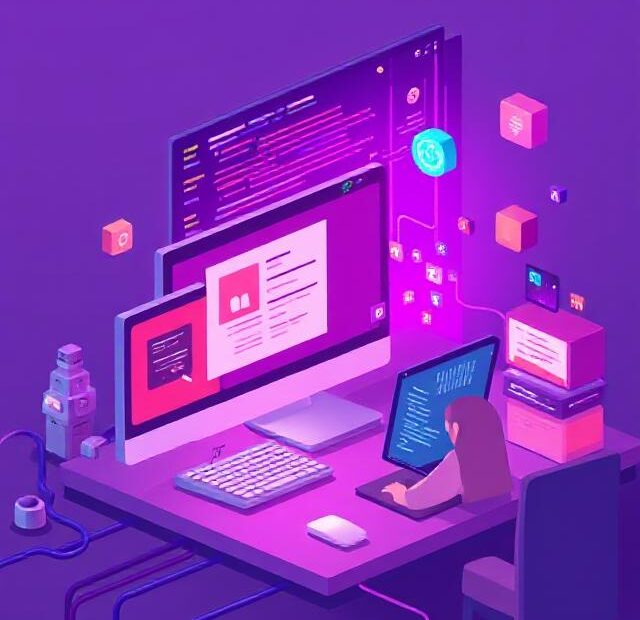As technology evolves, plugins continue to play a central role in shaping how websites and software applications operate. From WordPress plugins powering millions of websites to custom-built extensions for SaaS platforms, plugins have become the backbone of digital functionality. Entering 2025, businesses, developers, and marketers need to understand the plugin development trends to watch in 2025 to stay ahead of the curve.
In this article, we’ll explore the major shifts in plugin development and highlight what businesses and developers should prepare for in the coming year.
1. AI-Powered Plugins
Artificial Intelligence is no longer just a buzzword—it’s a game-changer. In 2025, expect AI to dominate plugin innovation.
Why it matters:
AI-powered plugins can automate tasks, personalize user experiences, and analyze data in real-time. For instance, AI chatbots, content optimization plugins, and predictive analytics tools are becoming increasingly mainstream.
Example:
Plugins that use AI to suggest SEO improvements, automate customer service, or recommend e-commerce products will become essential for websites aiming to stay competitive.
2. Low-Code and No-Code Compatibility
As businesses demand faster solutions, low-code and no-code platforms are on the rise. Plugins that integrate seamlessly with these platforms will dominate in 2025.
Why it matters:
Not everyone has coding expertise. Low-code compatible plugins allow business owners and marketers to extend their websites without technical barriers.
Trend Insight:
Developers will increasingly design plugins with intuitive interfaces, drag-and-drop elements, and simplified setup to serve non-technical users.
3. Enhanced Security Features
Cybersecurity remains a pressing issue. In 2025, plugin developers must prioritize security at the core of every build.
Why it matters:
With rising cyber threats, businesses cannot afford plugins that expose vulnerabilities. Secure plugins not only protect websites but also maintain customer trust.
What to Expect:
-
Built-in malware scanners
-
Automated security patch updates
-
Two-factor authentication integrations
-
Compliance with GDPR and other global standards
Security-focused plugin development will no longer be optional—it will be essential.
4. Performance Optimization and Speed
Website speed directly impacts SEO, user experience, and conversions. Plugins of the past often bloated sites with unnecessary code. In 2025, lean, performance-focused plugins will take the lead.
Why it matters:
Search engines like Google prioritize fast-loading websites. Plugins that add value without slowing performance will have the edge.
Best Practice:
Lightweight architecture, minimal scripts, and compatibility with caching/CDN technologies will be non-negotiable in modern plugin development.
5. API-First Development
APIs (Application Programming Interfaces) are becoming the glue that connects different systems. In 2025, plugin developers will increasingly adopt an API-first approach.
Why it matters:
An API-first plugin allows seamless integration with third-party tools such as CRMs, e-commerce platforms, and marketing automation software.
Example:
A plugin that connects a website’s contact forms directly to a CRM like HubSpot or Salesforce offers immense value by streamlining workflows.
6. Cross-Platform Compatibility
In a world where businesses operate across multiple platforms, plugins that only work in one ecosystem are limiting. Cross-platform plugin development is a key trend for 2025.
Why it matters:
Users demand consistent experiences across WordPress, Shopify, Magento, or even SaaS platforms. Plugins built with cross-platform adaptability will reach larger markets.
Trend Watch:
Expect more universal plugin frameworks designed to integrate seamlessly across CMSs and e-commerce platforms.
7. Subscription and SaaS Models
The plugin marketplace is shifting from one-time purchases to recurring revenue models. Developers are increasingly adopting SaaS-style subscription pricing.
Why it matters:
Subscriptions allow developers to provide ongoing support, regular updates, and added features—while giving users peace of mind that their tools remain updated.
In 2025:
We’ll see more plugin providers offering freemium versions with premium upgrades, ensuring both accessibility and revenue sustainability.
8. Personalization and User Experience
User experience is everything in the digital age. Plugins that personalize experiences will be in high demand.
Why it matters:
Personalized content, recommendations, and user interfaces lead to higher engagement and conversions.
Future Example:
E-commerce plugins that dynamically adjust product suggestions or content plugins that customize blogs based on user behavior will dominate in 2025.
9. Greater Focus on Accessibility
Accessibility is no longer optional—it’s a requirement. Plugins in 2025 will increasingly include features designed to make websites inclusive.
Why it matters:
Regulations and user expectations demand accessible websites. Plugins that ensure compliance with WCAG standards will be sought after.
Examples of Accessibility Features:
-
Screen reader compatibility
-
Keyboard navigation support
-
High-contrast display options
10. Sustainability and Eco-Friendly Development
Sustainable technology is gaining traction across industries, and plugin development is no exception. In 2025, eco-friendly plugins designed with energy-efficient code and minimal server strain will gain popularity.
Why it matters:
Environmentally conscious businesses are looking for tools that align with their values. Developers who prioritize green coding practices will have a competitive edge.
Final Thoughts
The future of plugins is exciting, with innovation driven by AI, security, performance, and cross-platform adaptability. By keeping an eye on the plugin development trends to watch in 2025, businesses and developers can stay ahead of the curve and ensure they deliver tools that users truly need.
Whether you’re building or using plugins, 2025 will demand more intelligent, secure, and user-focused solutions than ever before.
Also, you can learn more about Plugins Help Automate Business Processes here.
